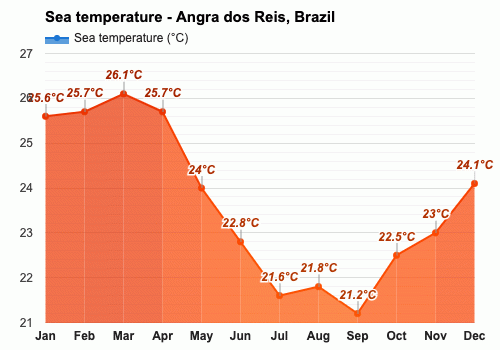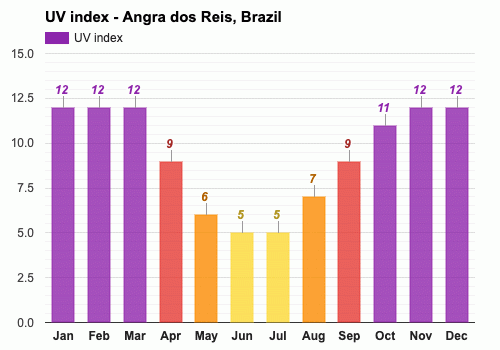February
Weather in February
Temperature
February, marked by an average high-temperature of 30.4°C (86.7°F) and a low-temperature of 23.1°C (73.6°F), is the warmest month.Heat index
The average heat index in February is calculated to be a sweltering 39°C (102.2°F). Special measures are necessary to avoid heat cramps and heat exhaustion. Persistent activity could result in heatstroke.In terms of the heat index, values are set with light wind and shade conditions in mind. The direct sun can potentially cause the heat index to increase by 15 Fahrenheit (8 Celsius) degrees.
Note: The heat index, also known as 'feels like' or 'apparent temperature', is an estimation of the warmth sensation when considering humidity levels. The influence of weather is personal, with varied individuals experiencing it differently due to differences in body mass, stature, and physical exertion levels. Keep aware, the sun, when shining directly, can intensify the heat experience, pushing the heat index up by 15 Fahrenheit (8 Celsius) degrees. Heat index values remain especially vital for babies and toddlers. Juveniles often do not understand the need to recuperate and rehydrate. Thirst is a delayed symptom of dehydration - hence, it is vital to maintain hydration, particularly during ongoing physical activities.
The primary way humans combat excessive warmth is by perspiring, letting sweat evaporate and cool the body. An upsurge in relative humidity affects normal body cooling mechanisms by slowing evaporation, hence reducing the rate at which the body cools and intensifying the perception of heat. The body faces dehydration threats when its cooling efforts are outpaced by excessive heat gain.
Humidity
February is the least humid month in Angra dos Reis, with an average relative humidity of 80%.Rainfall
In February, in Angra dos Reis, the rain falls for 15 days. Throughout February, 240mm (9.45") of precipitation is accumulated. Throughout the year, there are 165 rainfall days, and 1977mm (77.83") of precipitation is accumulated.Sea temperature
In February, the average sea temperature is 25.7°C (78.3°F).Note: Swimming, diving, and other water-related activities in temperatures between 25°C (77°F) and 29°C (84.2°F) are considered highly enjoyable and satisfying for longer durations without uneasiness.
Daylight
The average length of the day in February is 12h and 52min.On the first day of the month, sunrise is at 05:36 and sunset at 18:44. On the last day of February, in Angra dos Reis, Brazil, sunrise is at 05:52 and sunset at 18:26 -03.
Sunshine
The months with the most sunshine are February and July, with an average of 6h of sunshine.UV index
January through March, November and December, with an average maximum UV index of 12, are months with the highest UV index. A UV Index value of 11, and more, symbolizes an extreme threat to health from exposure to the Sun's UV rays for ordinary individuals.Note: In February, the maximum UV index of 12 transforms into these recommendations:
Ensure every crucial precaution is taken. Individuals with light skin could experience burns in under 5 minutes. Avoid direct exposure to the Sun between 10 a.m. and 4 p.m., the peak period for UV radiation, noting that objects like parasols or canopies might not offer complete sun protection. Equip yourself with UVA and UVB-filtering sunglasses on clear, sunny days. Use liberally and reapply a broad-spectrum sunscreen with at least SPF 30 every two hours and right after outdoor activities or a swim. Watch out! Reflections from sand and water can surge UV radiation exposure.
Published by: Weather Atlas | About Us
Data Sources | Weather Forecasting & Climate
Frequently asked questions
What is the warmest month in Angra dos Reis?
How hot is February in Angra dos Reis?
What is the least humid month in Angra dos Reis?
What is the average humidity in February in Angra dos Reis?
How much does it rain in Angra dos Reis in February?
How warm is the water in February in Angra dos Reis?
What is the average length of the day in February in Angra dos Reis?
What time are sunrise and sunset in February in Angra dos Reis?
What are the months with the most sunshine in Angra dos Reis?
How long on average sun shines in February in Angra dos Reis?
When is the highest UV index in Angra dos Reis?
How high is the UV index in February in Angra dos Reis?

Average temperature in February
Angra dos Reis, Brazil
- Average high temperature in February: 30.4°C
The warmest month (with the highest average high temperature) is February (30.4°C).
The month with the lowest average high temperature is July (24.6°C).
- Average low temperature in February: 23.1°C
The month with the highest average low temperature is February (23.1°C).
The coldest month (with the lowest average low temperature) is July (16.5°C).

Average humidity in February
Angra dos Reis, Brazil
- Average humidity in February: 80%
The month with the highest relative humidity is October (83%).
The month with the lowest relative humidity is February (80%).

Average rainfall in February
Angra dos Reis, Brazil
- Average rainfall in February: 240.2mm
The wettest month (with the highest rainfall) is January (276.4mm).
The driest month (with the least rainfall) is July (76.2mm).

Average rainfall days in February
Angra dos Reis, Brazil
- Average rainfall days in February: 15 days
The month with the highest number of rainy days is December (20 days).
The months with the least rainy days are June, July and August (9 days).

Average sea temperature in February
Angra dos Reis, Brazil
- Average sea temperature in February: 25.7°C
The best month for swimming (with the highest average sea temperature) is March (26.1°C).
The coldest month (with the lowest average sea temperature) is September (21.2°C).

Average daylight in February /
Average sunshine in February
Angra dos Reis, Brazil
- Average daylight in February: 12h and 5min
The month with the longest days is December (Average daylight: 13h and 30min).
The month with the shortest days is June (Average daylight: 10h and 42min).
- Average sunshine in February: 6h
The months with the most sunshine are February and July (Average sunshine: 6h).
The months with the least sunshine are September, October, November and December (Average sunshine: 4h).

Average UV index in February
Angra dos Reis, Brazil
- Average UV index in February: 12
The months with the highest UV index are January, February, March, November and December (UV index 12).
The months with the lowest UV index are June and July (UV index 5).


